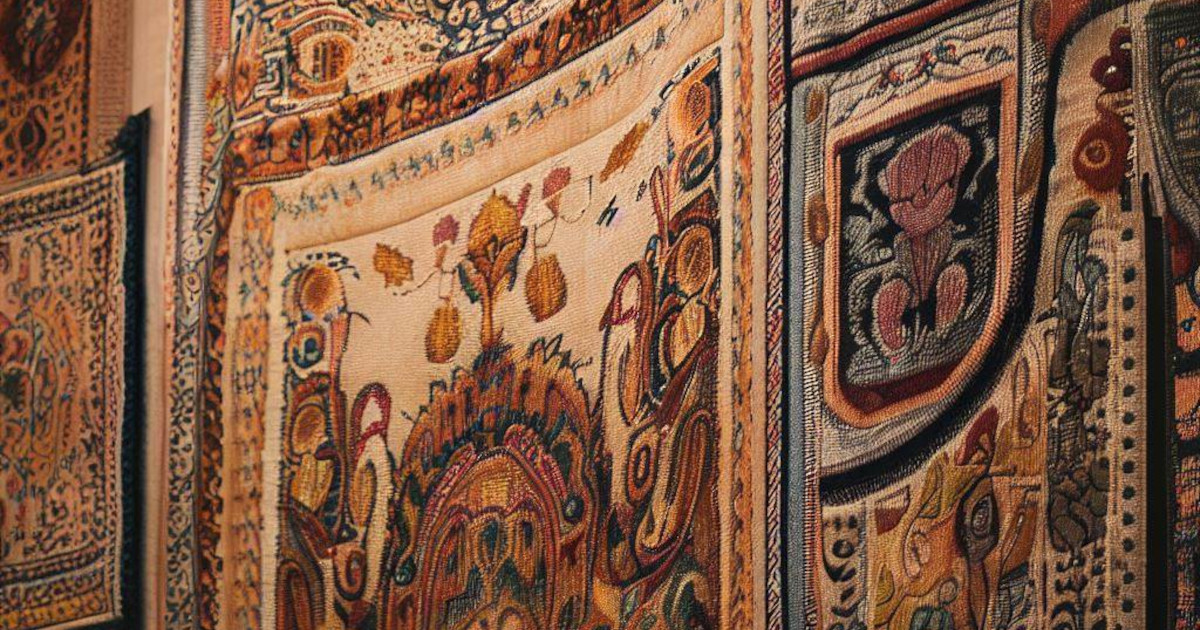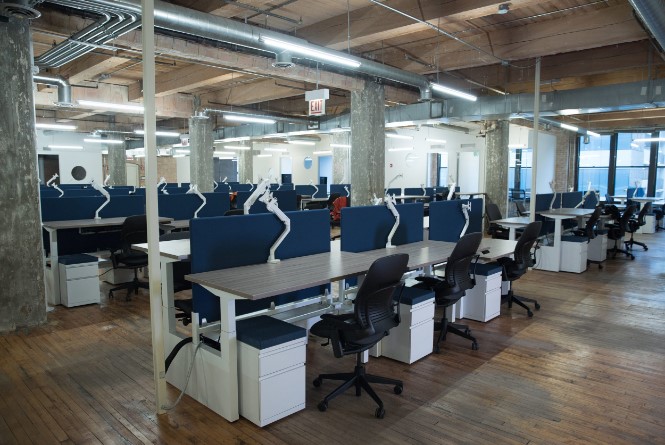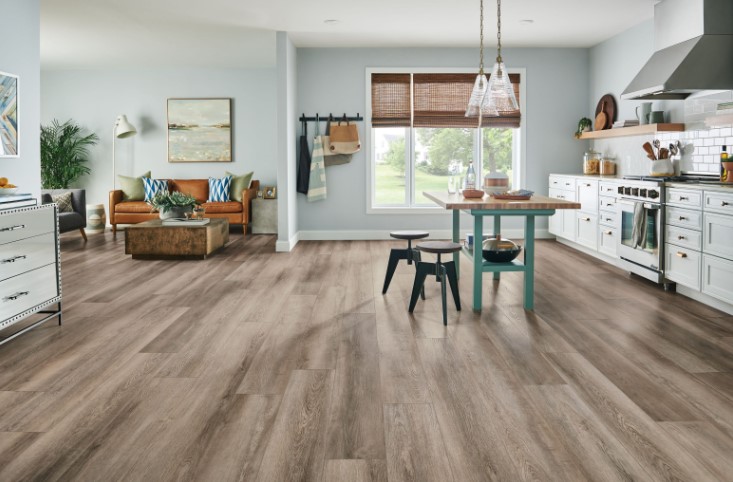
Flooring Guide: Choosing Hardwood for Your Home or Business
As one of the most classic and durable options, hardwood floors are an excellent choice for those looking to add both value and style to their home or business. Choosing the right flooring can be an overwhelming task, given the myriad of options available in terms of types, species, and finishes. Let’s dive into the world of hardwood flooring, and help you make an informed decision for your space.
Understanding the Types of Hardwood Flooring
Hardwood flooring falls into two primary categories: solid and engineered. The classic solid hardwood floor is fashioned from a single, solid piece of wood, known for its robustness and lifespan. Its beauty endures as it can undergo several rounds of sanding and refinishing throughout its lifetime. Conversely, engineered hardwood is a composite product made up of a genuine wood top layer adhered to multiple plywood layers underneath. What sets engineered hardwood apart is its resistance to warping caused by fluctuations in humidity and temperature, a trait that makes it an attractive option for areas with considerable seasonal changes.
Considering the Pros and Cons of Hardwood Floors
Hardwood flooring undoubtedly has its set of advantages that have kept it in favor for centuries. The allure of natural wood grain coupled with their durability adds to the timeless charm, making hardwood floors an investment worth considering. Furthermore, they are incredibly easy to maintain on a day-to-day basis as they don’t harbor dust, dirt, or allergens, making them an excellent choice for those with allergies.
Yet, there are considerations to keep in mind. Hardwood is susceptible to scratches and dents, particularly in areas of your home or business that see a lot of foot traffic or if you have pets. Aesthetically, while they add warmth and richness to a space, the noise produced when walked upon may be less than ideal for some, especially in multi-level homes or offices.
Moreover, hardwood floors demand regular maintenance to ensure their longevity and retain their luster. This may include periodic refinishing to tackle scratches, dents, and the general wear and tear that comes with age.
While these factors are certainly important to consider, it’s also worth noting that each type of hardwood floor – solid or engineered, will present its own set of pros and cons. For instance, the ability of engineered hardwood to resist warping due to changes in humidity and temperature may outweigh the potential for scratches and dents, depending on the specific conditions of your space.
In essence, understanding the pros and cons of hardwood floors is a crucial step in the decision-making process, as it aids in choosing a floor that best fits the needs and conditions of your home or business.
Exploring the Various Hardwood Species
The type of wood you select can drastically influence the aesthetics and longevity of your floors. There is a broad range of wood species to consider, each with its own unique features and benefits. Oak is a top contender for its durability and versatility in color variations. Another popular choice is maple, favored for its subtle grain pattern and light hue. Hickory, on the other hand, provides a charming rustic appeal and is known for its superior hardness. For those seeking more distinctive choices, exotic species such as Brazilian Cherry or Tigerwood provide eye-catching color variations and intricate patterns, though they may be more costly. The choice of species is a significant factor in creating the desired look and determining the resilience of your hardwood floors.
Deciding on the Right Finish for Your Hardwood Floors
The finishing touch to your hardwood floors significantly impacts both their appearance and upkeep requirements. Selecting a glossy finish will imbue your floors with a high-end shine, although its reflective surface may make any scratches or dents more noticeable. An alternative is a satin finish, which strikes a balance between luster and subtlety. It provides a gentle gleam without bringing too much attention to potential flaws in the flooring. In recent years, matte finishes have gained popularity due to their contemporary aesthetic. Ideal for bustling areas or households with pets, matte finishes are adept at concealing any scratches that may occur. Each finish brings its own unique charm and practical advantages to your hardwood floors, so considering the ambiance you want to create and the level of traffic in the space will guide you in making the right choice.
Factoring in the Cost of Hardwood Flooring
When evaluating the cost implications of installing hardwood flooring, there’s a spectrum to consider, largely influenced by your choice of wood species, the selected finish, and the intricacies of the installation process. Generally, hardwood flooring materials fall within a price bracket of $3 to $14 per square foot. The installation, on the other hand, can add an additional $3 to $10 per square foot to the total cost. These estimates, however, are not absolute; factors like the complexity of the installation, the specific hardwood species chosen, and the degree of finish desired can cause these figures to fluctuate. Do bear in mind that hardwood floors are not just a purchase; they’re an investment that could potentially enhance the value of your home or business over time, especially with diligent maintenance. An important consideration is to make sure that your budget doesn’t just accommodate the initial installation but also accounts for ongoing maintenance costs to ensure the longevity and aesthetics of your hardwood floors.
Choosing the Right Installation Professional
Investing in hardwood flooring goes beyond the materials – the installation process is just as crucial in preserving its appeal and durability. Employing an expert installer well-versed in the type of hardwood you’ve chosen can significantly impact the longevity and overall aesthetics of your floors. Start by seeking a professional who is fully licensed and insured, ensuring they adhere to industry standards and are accountable for their work.
An installer’s reputation is also an important consideration. Look into customer reviews and ask for examples of past projects similar to yours. This way, you can gauge their capability and quality of work before committing. Additionally, obtaining multiple quotes is recommended to help you understand the market rate and ensure you’re not being overcharged.
Remember, hardwood flooring isn’t just a one-time cost; it’s an ongoing investment. Therefore, the installer should not only have a strong track record of successful installations but also be knowledgeable about maintenance practices. They should be able to offer advice on how best to care for your floors, keeping them looking new and extending their lifespan.
Overall, finding the right professional to install your hardwood flooring is a critical step that can ultimately dictate the value and appeal of your investment. It requires careful consideration and research, but the result will be a beautifully installed hardwood floor that lasts for years to come. If you’re looking for Brownsburg flooring, check out ProSand flooring.
You May Also Like
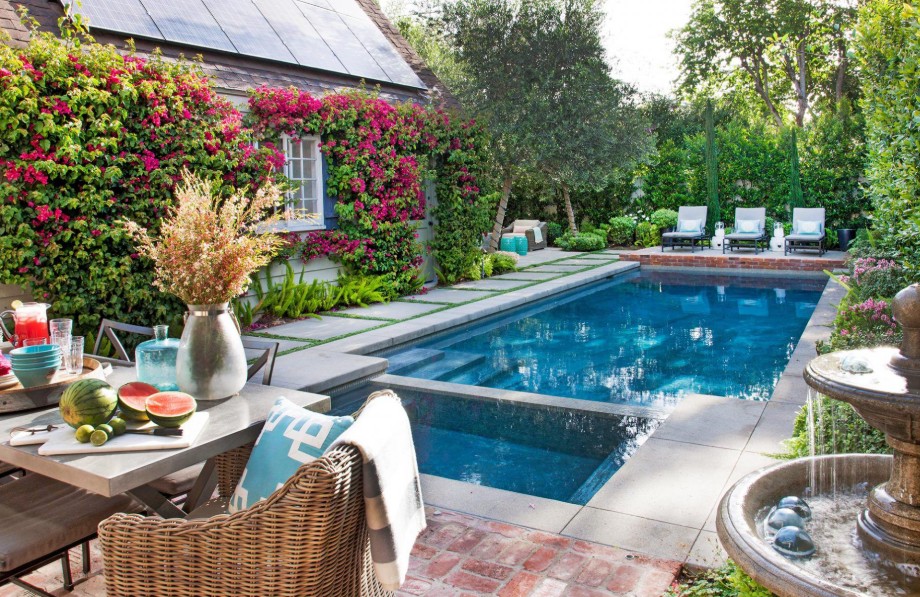
Inground Pool Installation: What to Expect, Plan, and Prepare
April 25, 2025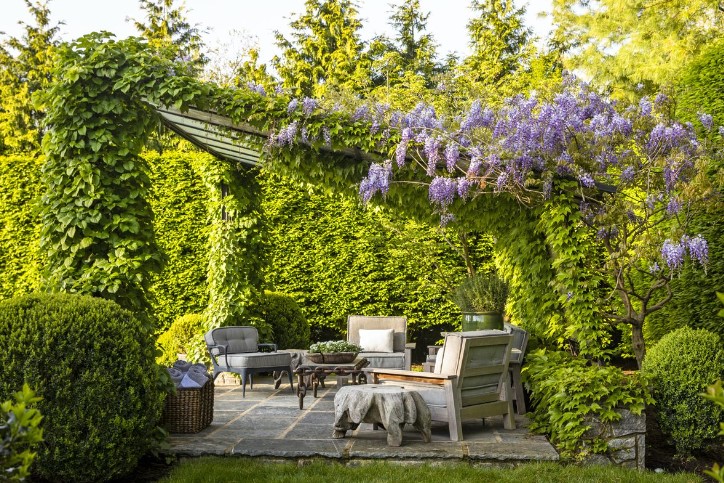
Beautiful Garden Ideas
July 5, 2023